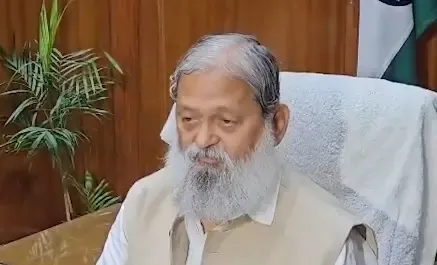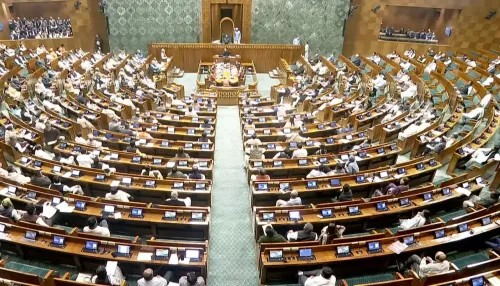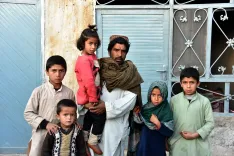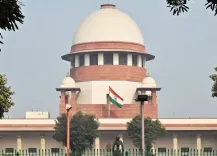Is the UK Government's Top Priority Citizen Safety? Shabana Mahmood Takes Charge as New Home Secretary
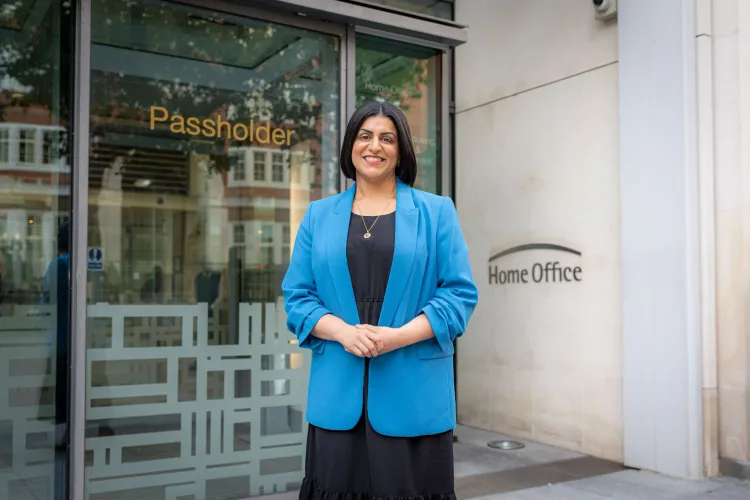
Synopsis
Key Takeaways
- Shabana Mahmood becomes the new UK Home Secretary.
- Her main focus is on the safety of UK citizens.
- She will tackle significant immigration and asylum challenges.
- Mahmood has a history of legal expertise as a former barrister.
- Her leadership is expected to bring new policies on human rights and immigration.
London, Sep 6 (NationPress) Shabana Mahmood has been named the new UK Home Secretary, taking over from Yvette Cooper, following a significant Cabinet reshuffle in the Labour Party-led government that was prompted by the resignation of former Deputy Chief Minister Angela Rayner.
Upon assuming her new role on Friday, Mahmood expressed her honor in serving and emphasized that the "primary responsibility of the UK government is ensuring the safety of its citizens".
In a statement via her official X account, Mahmood shared, "It is the honor of my life to serve as Home Secretary. The first responsibility of government is the safety of its citizens. Each day in this position, I will be dedicated to that goal."
The Home Department welcomed Mahmood as the new UK Home Secretary in a post on X, stating, "For over two centuries, the Home Secretary has protected the nation. Today marks the beginning of a new chapter as we welcome @ShabanaMahmood to the Home Office as the new Home Secretary."
Earlier on the same day, David Lammy was appointed as the new UK Deputy Prime Minister.
Mahmood faces one of the most challenging briefs in the UK government, with increasing pressure regarding record Channel crossings, asylum hotels, and migration.
During her tenure as Lord Chancellor and Justice Secretary over the past year, she has worked to address the issue of jail overcrowding and recently introduced significant legislation to reform the prison system.
A key focus of her responsibilities has also been the backlog in the courts; however, as a daughter of immigrants of Kashmiri descent, she has been drawn into immigration policy, which will occupy much of her new responsibilities.
As the highest-ranking Muslim woman in the UK government, Mahmood supported Prime Minister Keir Starmer after his warning in May that Britain risked becoming an "island of strangers," though she refrained from using that specific term.
When asked if she would echo the Prime Minister's sentiments, she replied, "I concur with the Prime Minister that without restrictions on migration, without ensuring we have robust rules that everyone adheres to, and that we maintain an immigration pace that allows for integration into our country, we do risk becoming a nation of people alienated from one another."
"What he has articulated resonates with me, and embodies the values of the Labour Party, which aims to see this country as a community of neighbors."
Her appointment comes amid dissatisfaction over the summer regarding the government's handling of small boat crossings and the accommodation of asylum seekers in hotels, leading to protests and criticism from the Labour Party's political rivals.
This past summer, Mahmood also stated that the European Convention on Human Rights needs reform to regain public confidence throughout the continent.
On Tuesday, she mentioned to the Lords Constitution Committee that it is "perfectly acceptable" for Ministers to question the UK's stance on upholding the treaty, adding that European counterparts regard the UK as leaning toward the "maximalist end of the spectrum".
The former barrister will now oversee proposals aimed at tightening the application of Article 8, which addresses the right to family and private life under the ECHR in immigration cases, expected to be introduced this autumn.
As Justice Secretary, she also proposed a legislative change mandating the immediate deportation of foreign criminals upon receiving a custodial sentence, during a time when the Home Office aims to increase the return of migrants lacking legal rights to remain in the UK.
Announcing the initiative last month, she stated, "If you abuse our hospitality and violate our laws, we will send you away."
"Deportations have increased under this government, and with this new law, they will occur sooner than ever before."
Her appointment has been praised by Lord Glasman, the founder of Blue Labour, who expressed to Politico that the decision was "fantastic".
"She is now clearly the leader of our faction within the party."



